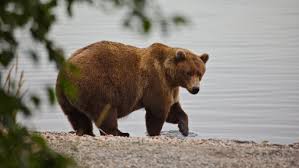
Introduction
Fat Bear Week has become an annual celebration, highlighting the conservation efforts and the incredible wildlife of Katmai National Park in Alaska. Each autumn, this delightful event captures the attention of nature lovers worldwide as people vote for their favorite bears as they prepare for hibernation. As we look forward to Fat Bear Week 2025, the event continues to raise awareness about the importance of wildlife conservation and the unique ecosystems these bears inhabit.
What is Fat Bear Week?
Fat Bear Week, first introduced in 2014, is an online competition hosted by the National Park Service, where the public votes for the fattest bear. The event takes place around the end of September and early October, coinciding with the bears’ pre-hibernation feast before winter. The bears of Katmai National Park, especially those like Bear 747 and Otis, become fan favorites, showcasing their remarkable ability to gain weight before entering hibernation. The competition not only highlights the bears’ physical transformations but also educates the public about their natural behavior and habitat.
Events and Activities for 2025
In 2025, Fat Bear Week promises to be bigger and more engaging with a range of activities aimed at both children and adults. Educational webinars, live camera feeds from the bear cams set up around the Brooks River, and social media challenges will enable the public to engage with the event and learn about bear ecology. Participants can expect themed merchandise, and the popular ‘Bear ID’ tutorials will assist newcomers in recognizing the different bears. Voting will become available online, with the park encouraging viewers to share their experiences on social media to further promote awareness of conservation.
The Significance of Fat Bear Week
Fat Bear Week is more than just a fun competition; it serves as a vital platform for raising awareness about wildlife conservation issues. Bears are a key species in the Alaskan ecosystem, and their health reflects broader environmental conditions. By engaging the global community in the whimsical yet serious undertaking of fattening for winter, the event encourages support for conservation efforts. The increased interest in these magnificent creatures has resulted in greater funding for research, preservation of habitats, and educational outreach programs.
Conclusion
As we anticipate Fat Bear Week 2025, the excitement for this playful event underscores its growing importance in conservation efforts. With the threat of climate change impacting wildlife habitats, raising awareness about these magnificent bears is crucial. Fat Bear Week continues to unite people across the globe in their appreciation for nature while promoting the significant value of wildlife preservation. Join the festivities this fall and help support the future of the bears of Katmai National Park!



